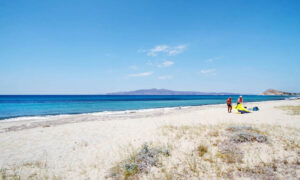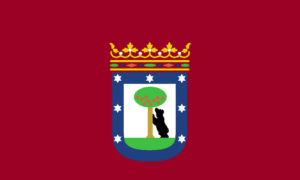Boletín Oficial Del Estado, Spain’s official gazette, just published further details of the measures that will go into effect 23 November requiring travellers from high risk areas arriving in Spain (by air or sea) to present, on demand, a negative PCR test.
Anyone arriving in Spain over land borders will not be affected.
During the past few days, there have been many references to these new rules on social media and elsewhere. However, few if any mention the fact that not all tests are equal. For example, only the PCR (COVID-19 RT-PCR) will be accepted.
PCR stands for polymerase chain reaction, one of the two most common types of coronavirus detection tests along with the antigen tests.
Other diagnostic tests such as rapid antibody tests, rapid antigen detection tests or high throughput serologies (ELISA, CLIA, ECLIA) will not be accepted.
The second important point to mention is that the documentation (or certificate) can be presented in paper or electronic format. However the document must be in either Spanish and/or English and contain at least the following information:
• the person’s name
• the person’s passport number or national identity card number (which must coincide with the one used on the Health Control Form),
• date of the test,
• identification and contact information of the centre
performing the analysis, technique used and negative test result.
Spain’s Minister For Foreign Affairs, Arancha González Leya, is urging airlines and ferry companies to check documentation prior to allowing passenger to board. However, González admitted that it would not be obligatory. Consequently the onus is firmly on the individual. Anyone arriving in Spain without the necessary documentation will face a hefty fine of up to 6,000 euros and they will be still required to take a test.
Of course, visitors to the Canary Islands will already be accustomed to the testing. However the new rules introduced by the Spanish government will replace them and go one step further by only permitting PCR tests and requiring all ages to have been tested. (Local rules previously allowed for antigen tests and excluded children 6 years old or under).
Individuals who are in transit through Spain will not be required to present a test at their airport or port of transit as they will not be entering Spain.
As is always the case in the current climate, things can and do change with alarming regularity so always check with the airline or ferry company that you are travelling with for the very least information.
A list of the countries affected can be found in Annex II of the (BOE) – ,
They include:
Austria Belgium, Bulgaria, Croatia ,Cyprus, Czech Republic, Denmark (except Faroe Islands and Greenland), Estonia, France, Germany, Greece (except the regions of Kitri, Ionia Nisia, Dytiki Ellada and Sterea Ellada), Hungary, Iceland, Republic of Ireland, Italy, Latvia, Liechtenstein, Lithuania, Luxembourg, Malta, The Netherlands, Norway (except the regions of Rogaland, Møre og Romsdal, Nordland, Viken, Innlandet, Vestfold og Telemark, Agder, Vestland, Trøndelag and Troms og Finnmark), Poland, Portugal (except the Azores), Romania, Slovakia ,Slovenia and Sweden.
Outside of the EU, the countries affected are;
Albania, Andorra, Argentina, Armenia, Bahrain, Belize, Bosnia and
Herzegovina, Cape Verde, Colombia, Costa Rica, French Polynesia (France), Georgia, Gibraltar (UK), Guam, Jordan, Kuwait, Lebanon, Libya, Moldova, Monaco, Montenegro, Morocco, North Macedonia, Palestine, Panama, Puerto Rico, Russian Federation, San Marino, Saint Martin, Serbia, Switzerland, Tunisia, Ukraine, United Arab Emirates, United
Kingdom, United States.
The list will be reviewed fortnightly and any updates announced accordingly.

About the author:
Irina Greensitt is from the far eastern town of Khabarovsk in Russia, but has previously been living in the United Kingdom for seven years before moving to Spain in 2014 together with her husband and two young children.
Irina now runs an internet business and lists walking, travel and sailing (passing her skippers exam in 2016) amongst her hobbies.
See all of Irina’s posts here.
See more from Dispatches’ Spanish archive here.














